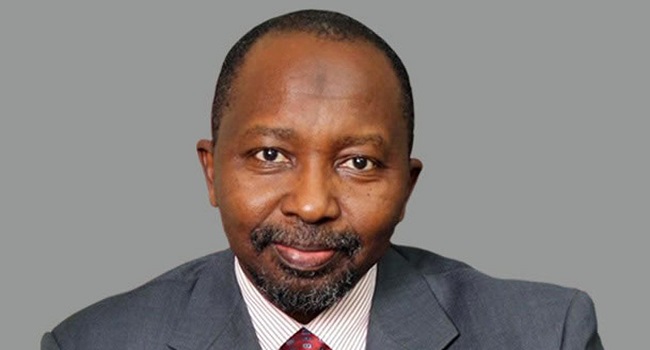Business
National Insurance Commission decries low capital base of Nigerian insurance companies

The low capital base of insurance companies in the country has adversely affected their capacity in the business, the Commissioner for Insurance and Chief Executive Officer, National Insurance Commission (NAICOM), Alhaji Mohammed Kari has said.
According to him, because of the low capacity of insurance companies in the country, my multinationals and high networth individuals in the country now engage in double insurance to stay safe.
This involves insuring assets locally to meet local content and also insure offshore due to the inadequate capacity of local insurers.
According to Kari, multinationals and high net worth individuals choose to pay for double cover because they don’t thrust local operators’ capacity.
Kari said in an interview with Vanguard: “A lot of the big clients in Nigeria still do double insurance. First they insure to meet the requirement of the local content. However, they still insure abroad independent of their local insurers. So, they prefer to pay insurance twice because they don’t trust local operators’ capacity.”
Blaming the current capital level of insurance companies for the problem, Kari said the current capitalisation regime was introduced 13 years ago, which he said is against obtains in other financial sectors.
He said: “The current capital of insurance companies was increased thirteen years ago. Which financial sector leaves capital stagnant for thirteen years? In the last ten years, microfinance banks license have been reviewed five times. That is how a financial sector operates and to a large extent a responsible operator should do these things without regulatory prompting.
“We are the weakest link in the Nigerian economy and now we are going to be less capitalized than mortgage guarantee banks with N6 billion and less capitalized than microfinance banks with N5 billion. How can an insurance company that insures the aviation sector have capital less than that of microfinance banks? We should wake up.
Read also: NNPC claims diverted NLNG dividend used to fund subsidy payments
“Some insurance operators argue that capital is not important. If capital has no function, how come banks bought over insurance companies that used to be owned by insurance companies?
“Insurance anywhere in the world is the mobilizer of funds and provider of security. You cannot provide security if you don’t have capital. How can you approach a microfinance bank of N5 billion and tell them you want to give them protection. What is your capital?
“The claim you pay and the liability you hold is a function of your financial ability. Check any jurisdiction in the world, insurance companies are more capitalized than banks. Breaking the electricity supply jinx
“Insurance companies own virtually all the financial sector in the world. They fund infrastructure because they have long term funds to fund long term business. If the insurance industry don’t need capital, why are they the weakest link in the financial sector?
“We have had three regulators in Africa who had come to understudy the Tier Based Minimum Solvency Capital, TBMSC, structure because they loved it and they are thinking of introducing it in their market.”
Kari however noted that the TBMSC policy is just a document with a name because the regulator has always been implementing it directly in the past.
Join the conversation
Support Ripples Nigeria, hold up solutions journalism
Balanced, fearless journalism driven by data comes at huge financial costs.
As a media platform, we hold leadership accountable and will not trade the right to press freedom and free speech for a piece of cake.
If you like what we do, and are ready to uphold solutions journalism, kindly donate to the Ripples Nigeria cause.
Your support would help to ensure that citizens and institutions continue to have free access to credible and reliable information for societal development.






















